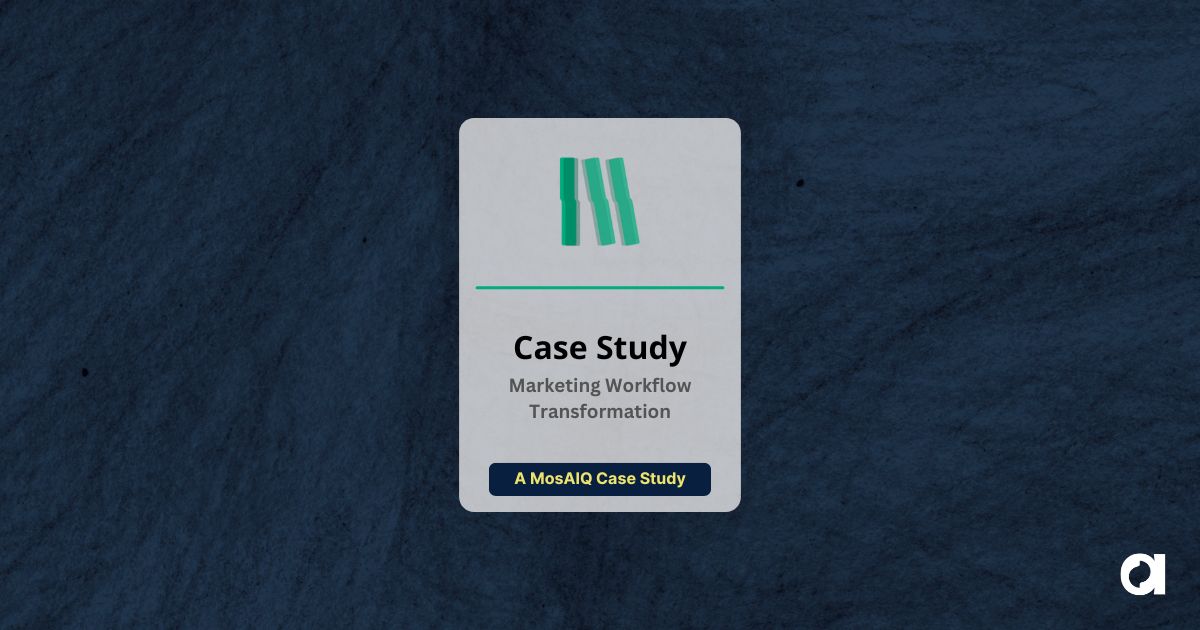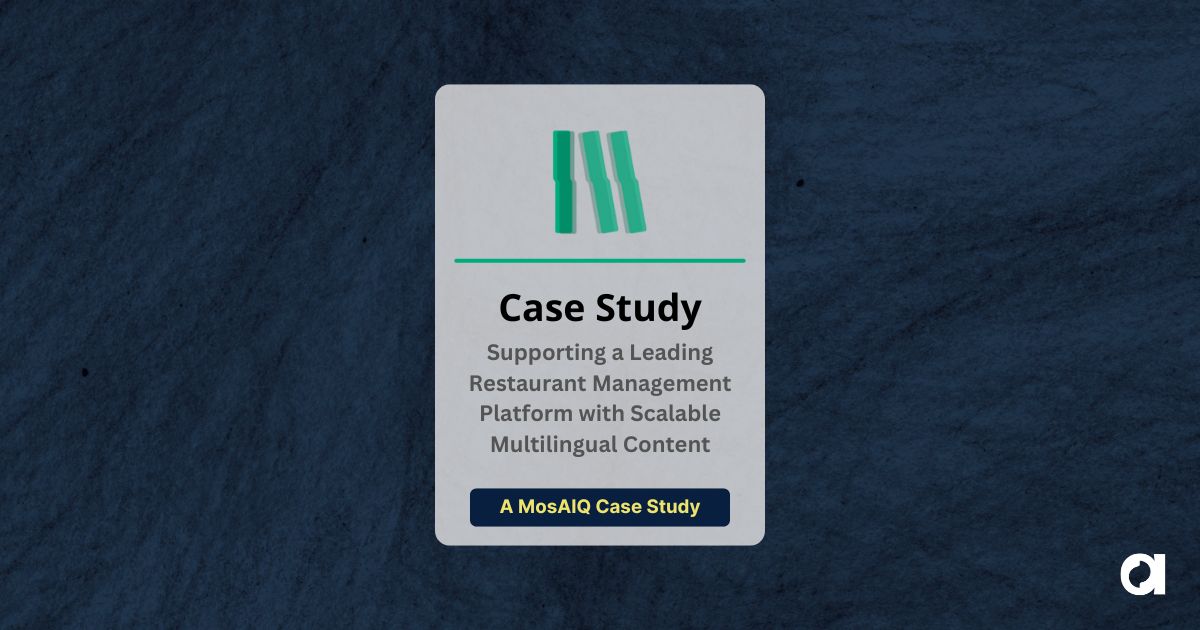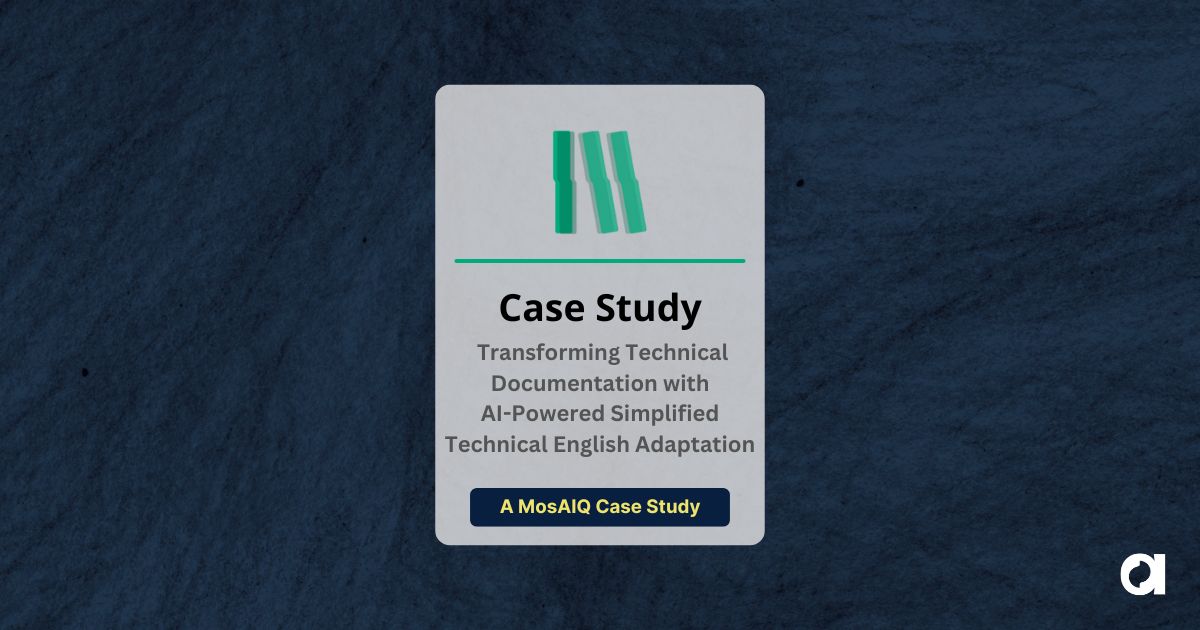For those of us who work in language services, AI is everywhere these days. At Argos, we’re harnessing its potential—using artificial intelligence to clean up translation memories, refine quality assurance processes, and customize machine translation engines for complex multilingual projects.
AI helps localization teams tackle the challenges of scale and complexity. It takes on repetitive, time-consuming tasks like reviewing massive translation memories or running quality checks, so human experts can focus on more creative work like ensuring cultural relevance and the global user experience. However, misconceptions about AI in localization can create barriers, leading to missed opportunities or hesitation about its role.
Let’s explore three of the most common misconceptions about AI in localization and how understanding them can help you use it more effectively.
1. AI is a Simple Fix
The idea that AI is a plug-and-play solution has gained traction in recent years. It’s easy to see why—AI tools are marketed as fast, efficient, and capable of handling complex tasks. But assuming that AI can produce perfect translations or function without human oversight can lead to major setbacks.
In reality, AI works best as part of a larger system. Tools like machine translation (MT) and translation memory (TM) rely on careful customization and training. Without it, AI may struggle with nuanced language and cultural specifics, leading to inconsistent results. That’s why successful localization projects always include human linguists who can refine and contextualize AI output.
Take Argos’s AI TM Cleanup Service as an example. This tool uses AI to analyze large translation memories, identify inconsistencies, and flag potential errors. But it doesn’t stop there—expert linguists review the flagged content, ensuring the final result is accurate, consistent, and ready for use.
To use AI effectively, it’s important to understand its strengths and limitations. AI excels at processing large volumes of data, identifying potential issues, and localization automation. But AI models rely on human expertise to ensure its output is accurate, culturally appropriate, and aligned with a project’s goals. Without that oversight, even the most advanced AI systems can fall short.

2. AI is Only for Large Enterprises
Let’s face it, AI can feel intimidating, especially if you’re running a small team with tight budgets and limited resources. It’s easy to assume these tools are designed exclusively for global corporations with endless infrastructure. But in reality, AI tools can scale and adapt to the needs of different organizations, from small teams to global enterprises.
For smaller teams, AI helps handle technical tasks that might otherwise slow down localization efforts. Argos’s AI-driven workflows can assist with pre-processing complex file types, automating text extraction, or managing metadata to ensure consistency across projects. These localization automations minimize manual effort, enabling smaller teams to manage more projects simultaneously, reduce turnaround times, and improve localization efficiency without sacrificing quality.
For larger organizations managing complex workflows, AI supports consistency and efficiency across multiple languages and markets. Argos’s AI Maturity Model provides a structured framework for assessing and scaling AI capabilities, helping enterprises identify gaps, prioritize automation, and integrate solutions effectively. Tools like quality estimation models flag potential errors early, while automated translation alignment ensures multilingual content stays accurate and cohesive.
AI’s ability to scale makes it a valuable tool for businesses of all sizes, whether solving bottlenecks for a small team or managing multilingual workflows for global enterprises. By addressing specific challenges and tailoring solutions to your priorities, AI becomes a practical, adaptable partner in achieving localization success.
3. AI Removes the Need for Localization Teams
The idea that AI can replace localization teams is a persistent myth, but it doesn’t hold up in the real world. Businesses still need language service providers to deliver quality, consistency, and scalability that AI can’t achieve.
For us, AI is a part of the process, but it’s never the whole solution. Every program we customize is guided by the expertise of our team, whether we’re refining machine translation output or ensuring compliance in regulated industries like life sciences. Our approach prioritizes a human perspective at every step, making sure technology is working in service of real-world needs.
Here are some other ways that localization companies help businesses bridge gaps that AI cannot address on its own:
- Tailored solutions: From building custom machine translation engines to streamlining file preparation, AI tools are adapted to meet specific goals and client priorities.
- End-to-end support: From project management to quality assurance, localization teams ensure that every project meets not just linguistic standards but also cultural and business objectives.
- Strategic insight: AI can process vast amounts of data, but localization experts identify patterns, interpret context, and make strategic decisions that machines cannot.
By bridging the gaps AI can’t address, localization teams ensure that every project is more than just transactional—it’s meaningful, accurate, and aligned with the needs of global audiences.

Setting the Record Straight on AI
Misconceptions about AI can hold businesses back from seeing how it can genuinely improve localization. AI streamlines repetitive tasks, manages complex workflows, and scales global efforts, but it’s the expertise of localization teams that turns these tools into meaningful solutions.
AI will never be a one-size-fits-all solution. But in the right hands, it’s a powerful tool that is accessible to businesses of all sizes, not just large enterprises. It enables businesses to solve localization challenges that were once too complex or time-consuming to tackle effectively. It aligns multilingual content across massive datasets, enforces terminology consistency across industries, and ensures compliance in regulated markets. These are tasks where human effort alone isn’t scalable—and where AI becomes a necessity, not just a convenience.
Curious about what’s possible? Check out our State of AI in Localization report or let’s talk about how Argos’s AI-driven solutions can fit into your localization strategy.
 Argos Multilingual
3 min. read
Argos Multilingual
3 min. read
San Francisco (CA), March 11, 2025 Argos Multilingual, a global content solutions leader, launches its newest flagship research publication, the “End-User in the Loop: Why the How of Using GenAI Matters” report. The report is based on an end-user survey gathering perspectives on AI from respondents across eight countries: Brazil, China, France, Germany, India, Japan, […]

 Argos Multilingual
5 min. read
Argos Multilingual
5 min. read
In language services, we work every day with industries where getting things right the first time matters. The solutions we provide to our clients are built on more than just promises—they’re grounded in proven, well-established international standards. Whether it’s ensuring patient safety in a life sciences translation or maintaining the confidentiality of financial documents, the […]











